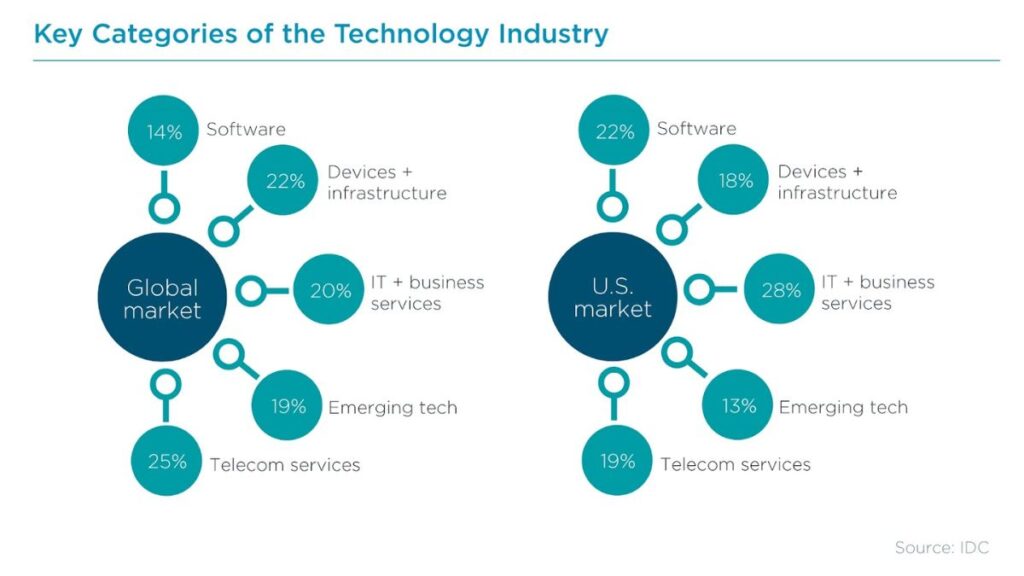The tech industry has undergone rapid evolution over the past few decades, driven by advancements in hardware, software, and cloud technologies. As the industry continues to grow and shape the modern world, the demand for skilled professionals has skyrocketed. With every new breakthrough, companies are looking for talent that can help them stay ahead of the curve. In this article, we explore the skills that are in high demand in the tech industry, helping job seekers and professionals better understand the current landscape of tech employment.
The Changing Landscape of the Tech Job Market
The tech industry is no longer confined to the realm of traditional software companies or IT departments. Today, virtually every sector is influenced by technology, from healthcare and education to finance and entertainment. This expansive growth has created an ever-increasing need for professionals with specialized skills. As the demand for digital transformation accelerates across all sectors, companies are searching for talent capable of harnessing the power of technology to drive innovation.
For job seekers, this presents both a challenge and an opportunity. The sheer pace of technological change means that some skills may quickly become obsolete, while others remain critical. To navigate the evolving tech job market, it’s essential to understand which skills are in demand and how to position yourself as a valuable asset to potential employers.
High-Demand Technical Skills
While the specific technical skills in demand may shift based on emerging technologies and market trends, there are several core skills that continue to be highly sought after in the tech industry. These are the skills that employers consistently look for when hiring new talent.
1. Cloud Computing and Cloud Infrastructure
Cloud computing has become one of the most transformative technologies of the 21st century, enabling businesses to store and process vast amounts of data on remote servers. As more companies migrate to cloud platforms such as Amazon Web Services (AWS), Microsoft Azure, and Google Cloud, professionals with expertise in cloud infrastructure are in high demand.
Cloud computing involves skills related to cloud architecture, security, networking, and data management. Professionals who can design, implement, and manage cloud-based systems are essential for companies looking to optimize their operations, reduce costs, and scale efficiently. Cloud engineers, cloud architects, and cloud security specialists are particularly sought after in the current job market.
2. Data Science and Data Analytics
Data is often referred to as the “new oil,” and the ability to extract actionable insights from large datasets has become one of the most valuable skills in the tech industry. Data scientists and data analysts are responsible for interpreting complex datasets, building predictive models, and driving decision-making processes.
Proficiency in programming languages such as Python, R, and SQL, along with familiarity with machine learning algorithms and statistical analysis, are key components of this skill set. With companies increasingly relying on data-driven strategies, data science and analytics skills are indispensable in fields like marketing, finance, healthcare, and e-commerce.
3. Artificial Intelligence (AI) and Machine Learning (ML)
Artificial intelligence and machine learning have become cornerstone technologies that power everything from self-driving cars to personalized recommendations on social media platforms. AI and ML professionals are in demand as companies look to integrate these technologies into their products and services to improve efficiency, automate processes, and enhance user experiences.
AI and ML specialists focus on developing algorithms and models that allow systems to learn from data and make decisions without human intervention. Expertise in neural networks, natural language processing, computer vision, and deep learning is crucial for professionals in this field. As AI and ML continue to evolve, demand for these skills will only grow.
4. Cybersecurity
With the increasing reliance on digital technologies comes the growing threat of cyberattacks. As data breaches and ransomware attacks make headlines, organizations are prioritizing cybersecurity to protect sensitive information and maintain trust with customers. Cybersecurity professionals are needed to develop and implement strategies that safeguard systems, networks, and data from potential threats.
Key cybersecurity skills include knowledge of encryption, firewalls, intrusion detection systems, penetration testing, and risk management. As cyber threats become more sophisticated, companies are also looking for experts in areas like ethical hacking and threat intelligence. Cybersecurity professionals play a vital role in ensuring that companies can continue to operate safely in an increasingly connected world.
5. Software Development and Programming
Despite the emergence of new technologies, software development remains at the heart of the tech industry. The demand for skilled software developers continues to be high, especially those with expertise in modern programming languages such as JavaScript, Python, Java, and C++. Full-stack developers, who have the ability to work across both front-end and back-end technologies, are particularly in demand.
In addition to technical skills, software developers must have a solid understanding of software development methodologies like Agile and DevOps, which emphasize collaboration, flexibility, and rapid deployment. Developers who can work effectively in these environments are highly valued, as they can help companies deliver products quickly and efficiently.
High-Demand Non-Technical Skills
While technical expertise is crucial in the tech industry, non-technical skills are equally important. Companies are increasingly looking for well-rounded professionals who can not only understand technology but also communicate effectively, collaborate with teams, and contribute to a positive company culture. Here are some non-technical skills that are in high demand.
1. Project Management
As tech companies grow, the complexity of their projects increases. Project managers play a critical role in ensuring that projects are completed on time, within budget, and to the desired quality standards. With many tech companies adopting Agile methodologies, professionals who can manage projects using frameworks like Scrum and Kanban are in high demand.
Project managers must have strong leadership, communication, and organizational skills, as they are responsible for coordinating cross-functional teams, setting project milestones, and mitigating risks. The ability to prioritize tasks and manage multiple projects simultaneously is key to success in this role.
2. Communication and Collaboration
Tech professionals are often tasked with working in interdisciplinary teams, collaborating with colleagues from various departments such as marketing, design, and sales. Effective communication is essential for ensuring that technical solutions align with business goals and customer needs.
Collaboration skills are especially important in remote and hybrid work environments, where teams are spread across different locations and time zones. Professionals who can communicate clearly and work effectively with others—whether they’re in the same room or on opposite sides of the world—are highly sought after by employers.
3. Problem-Solving and Critical Thinking
In the fast-paced world of tech, challenges arise constantly, and the ability to solve problems quickly and creatively is a must-have skill. Tech professionals are expected to think critically, analyze complex situations, and come up with innovative solutions to address issues.
This skill is particularly valuable for roles in areas like software development, data science, and cybersecurity, where professionals must continually adapt to changing requirements and tackle unforeseen problems. Strong problem-solving skills are a key indicator of a professional’s ability to thrive in dynamic, high-pressure environments.
How to Stay Competitive in the Tech Job Market
With the tech industry evolving at an unprecedented rate, it’s essential for job seekers to stay ahead of the curve. Here are a few strategies to remain competitive in the tech job market:
- Continuously Learn New Skills: The tech field is constantly evolving, and the skills that are in demand today may not be as relevant tomorrow. Engage in continuous learning through online courses, certifications, boot camps, and workshops to keep your skills current.
- Build a Strong Portfolio: Showcasing your work through personal projects, open-source contributions, or a portfolio website can help demonstrate your skills to potential employers. A strong portfolio gives you a competitive edge and allows you to stand out in a crowded job market.
- Network: Attending industry events, joining online communities, and connecting with professionals on platforms like LinkedIn can help you build relationships and gain insights into emerging trends. Networking is often a crucial step in finding job opportunities in the tech industry.
- Gain Experience: Even if you don’t have a formal job in the field, gaining experience through internships, freelance work, or side projects can be invaluable. Hands-on experience allows you to apply theoretical knowledge to real-world problems, making you more attractive to employers.
Conclusion
The tech industry offers a wealth of opportunities for those with the right skills. From cloud computing and data science to cybersecurity and software development, there are numerous high-demand skills that companies are looking for. By staying up-to-date with the latest trends, continuously learning, and honing both technical and non-technical skills, you can position yourself for success in the competitive tech job market. Whether you’re just starting out or looking to advance in your career, understanding which skills are in demand will help you navigate the rapidly evolving landscape of the tech industry.



